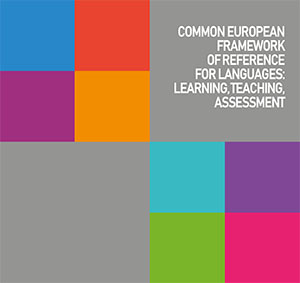Contributing institutions
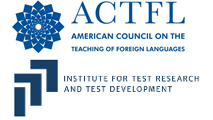
ACTFL | ITT

The American Council on the Teaching of Foreign Languages (ACTFL) provides vision, leadership and support for quality teaching and learning of languages. ACTFL is dedicated to the improvement and expansion of the teaching and learning of all languages at all levels of instruction. It is an individual membership organization of more than 12,500 language educators and administrators from elementary through graduate education, as well as government and industry. Since its founding in 1967, ACTFL has become synonymous with innovation, quality, and reliability in meeting the changing needs of language educators and their students. From the development of the Proficiency Guidelines, to its leadership role in the creation of national standards, ACTFL focuses on issues that are critical to the growth of both the profession and the individual teacher.
For more information: www.actfl.org.
The Institute for Test Research and Test Development (ITT) was established in Leipzig, Germany, in 2012. Its mission is to provide rigorous research support to institutions developing and administering language tests, to support the development, analysis and quality assurance of tests, and to inform the public about trends and advances in language assessment. The test items submitted by ACTFL to the Council of Europe were developed and validated by the ITT.
For more information: www.itt-leipzig.de.

BIFIE

Founded in 2008, The Federal Institute for Education Research, Innovation and Development of the Austrian School System (BIFIE) strives to ensure quality in education in a number of areas. Its main responsibility lies in organizing and implementing large-scale assessments of pupils and school achievement on a national and international level.
The BIFIE department in Salzburg is in charge of administering nationwide tests in the subjects of German and mathematics in grades 3 through 8, as well as in English as a foreign language in grades 6 through 8. Results are reported back to project stakeholders, teachers and students alike to enable empirically-driven policy-making and to foster the development of schools and teaching practice. Additionally, the department in Salzburg is responsible for the administration of international assessments such as PIRLS and TIMSS.
The BIFIE department in Vienna has been authorized to develop, implement and evaluate the national standardized secondary school-leaving examination for mathematics, German as a first language (and minority languages), and foreign languages (English, French, Italian, Spanish). More information . As of January 2017, the BIFIE department in Vienna has been integrated in the Austrian Federal Ministry of Education.
For more information: www.bifie.at.
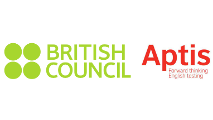
British Council | Aptis

The British Council is the UK’s international organisation for cultural relations and educational opportunities and was founded to create a friendly knowledge and understanding between the people of the UK and the wider world. We work in more than 100 countries, connecting millions of people with the United Kingdom through programmes and services in the English language, the arts, education and society. Aptis is a modern and flexible English language test designed by the British Council to meet the diverse needs of organisations and individuals around the world. Aptis tests grammar, vocabulary and language skills (speaking, writing, reading and listening), thus giving an organisation an overall picture of the tests takers’ English language abilities.
For more information: www.britishcouncil.org.
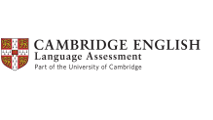
Cambridge English Language Assessment

Cambridge English Language Assessment is a division of Cambridge Assessment, a not-for-profit department of the University of Cambridge. We develop and produce the most valuable range of qualifications for learners and teachers of English in the world. Over 5 million people in 130 countries take our exams every year. Around the world over 20,000 universities, employers, government ministries and other organisations rely on our exams and qualifications as proof of English language ability. Cambridge English exams are backed by the work of the largest dedicated research team of any English language test provider.
For more information: www.cambridgeenglish.org
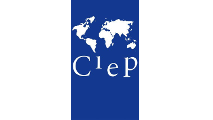
CIEP

Founded in 1945 and a national public institution since 1987, the CIEP is recognized both in France and abroad for its expertise with regard to expert evaluation, training, assessment, and management of international projects. There are three focuses of activity: cooperation in education and training, support for the use of the French language around the world and European and international mobility. A centre for information and reflection, and for hosting seminars and international conferences.
For more information: www.ciep.fr
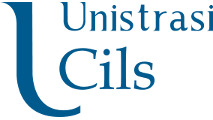
Unistrasi - CILS

Established in 1993, the CILS Centre is a research centre of the University for Foreigners of Siena (www.unistrasi.it) aimed at planning, developing, producing, administrating and validating the CILS certification. The CILS certification is a qualification issued by the university which declares the level of linguistic and communicative competences in Italian as a foreign language. The CILS exams offer an ample range of levels and uses that correspond to increasingly ample degrees of competence and to different social contexts of language use.
For more information: cils.unistrasi.it
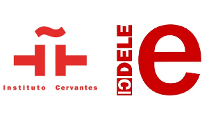
Instituto Cervantes | DELE

Instituto Cervantes is the organization of reference around the world for teacher training in Spanish as a Second Language, with over 120,000 students a year. It was set up by the Spanish Government in 1991 and is present in 40 countries all over the world. Instituto Cervantes organizes around 11,000 Spanish Courses and seminars a year; these are held in Spain and in the offices of the Institute around the world. The main aim of these courses is to update teachers' linguistic abilities and their teaching techniques.
The Diplomas de Español DELE are the official qualifications certifying levels of competence in Spanish. They are administrated and issued by the Instituto Cervantes, on behalf of the Spanish Ministry for Education, Social Policy and Sport.
For more information: www.dele.cervantes.es/en.
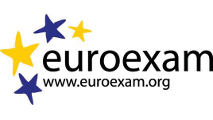
Euroexam Centre

The Euroexam Centre was established in September 2000. Its remit was to develop public state-accredited language examinations in Central Europe, and to offer testing services to schools internationally. The tests for the Euroexams were designed around the competency scales of the CEFR. The Euroexam Centre promotes quality in language teaching and the development of new initiatives by working together with a wide network of testing centres and partner organisations in Europe and beyond in organising training courses, publishing test and training materials and in delivering standardised assessment tools for the communicative classroom.
For more information: www.network.euroexam.org/#mission.
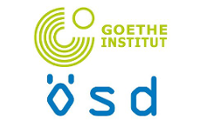
Goethe Institut | ÖSD

The Goethe-Institut is Germany’s cultural institution operating worldwide. With a network of institutes in 98 countries, additional Goethe Centers, cultural societies, reading rooms and language learning centers, it promotes the study of German. It runs language courses and administers internationally known language exams with almost 400.000 participants per year. First exams for German were developed in the 1960s, nowadays all Goethe language exams are based on the CEFR. The examination unit employs a permanent staff of twenty members. In addition to that there are a number of external experts, item-writers and vetters who work on a free-lance basis.
For more information:www.goethe.de/pruefungen
The ÖSD is a course-independent examination and assessment system for German as a Foreign Language/German as a Second Language, testing general German language skills at all CEFR levels (A1–C2). It was founded in 1992/1993, first examinations were held in 1995. ÖSD exams, which are available to both adults as well as young learners, are approved by Austrian authorities and internationally recognised for different purposes depending on the country.
For more information: www.osd.at

National Foreign Language Exam System (KPG)

The KPG involves high-stakes examinations, developed, validated and quality controlled in foreign language departments at the Universities of Athens and Thessaloniki, employing internal and external experts. Since 2003, the exams are administered by the Greek Ministry of Education, under the supervision of a 7-member highly-qualified Central Examination Board. Offered in English, French, German, Italian, Spanish and Turkish, they are based on performance descriptors aligned to the CEFR can-do statements, and consist of modules that assess levels of competence with graded test papers in reading and listening comprehension, language awareness, writing and speaking production. From levels B1 to C2 cross-language mediation is also assessed with test tasks based on descriptors resulting from data-driven research. The rigorous training of oral examiners and script raters, text, task and item difficulty in reading, listening and writing, as well as multiliteracy demands of test tasks are only a few of the issues which constitute objects of systematic research at the two university institutions involved with the examinations. The KPG certificate, on the 6-level scale of the Council of Europe, is issued by the Ministry of Education and recognised by the Greek state as well as in public sector services of the other European member states
For more information: rcel.enl.uoa.gr/kpg/en_index.htm

Matriculation Examination Finland

The Matriculation Examination, taken by 42-45% of students aged 18-19, is a high- stakes national examination dating back to 1852. It is administered twice a year in upper secondary schools to assess the attainment of the knowledge, skills and maturity specified in the curriculum, giving eligibility to university entrance. The examination consists of at least four tests: mother tongue is compulsory for all and the second national language and a foreign language are among the other five options available. Candidates can freely choose language tests at two levels, assessing listening and reading comprehension and written production. The tests will be digitalised after on-going piloting, and will include also oral production. The answers are marked first by teachers according to official guidelines and sent to the Board for external marking by teams of trained markers. Second or triple marking is used if needed. The six passing grades and the failing grade are allocated using a slightly modified normal distribution. Reporting the results also in terms of the CEFR levels has been explored but no decision has yet been taken.
For more information: www.ylioppilastutkinto.fi/se/english.
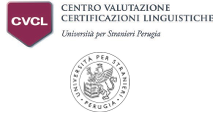
Università per Stranieri di Perugia - CVCL

The Università per Stranieri di Perugia, founded in 1921, is the oldest Italian institution involved in the diffusion of the Italian language and Culture. In 2005 the Centro per la Valutazione e la Certificazione Linguistica (CVCL) was established, replacing the former Certification Unit, which was in charge since 1993. It promotes and develops study and research activities in the field of assessment and Certification of Italian as a Foreign Language, focusing on the construction of language certification exams, on training of teachers of Italian as second language, and on management of national and international projects.The University is officially recognised as examination provider by the Italian Ministry of Foreigner Affairs.
For more information: www.cvcl.it.
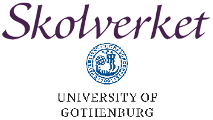
University of Gothenburg | Skolverket

On behalf of the National Agency for Education, the Swedish mandatory national tests of English are developed at the University of Gothenburg by a Language Research Group within the Department of Education and Special Education. The tests are currently produced for four levels, ranging from A2 to B2. All materials are produced in a collaborative process, involving teachers, teacher educators, researchers from different fields, and students who give feedback in small-scale piloting as well as during the large-scale pretesting rounds conducted for all materials. Since the 1980s, different universities in the country, demonstrating relevant and documented competence in educational assessment and subject content matter, are commissioned by the national school authorities to be in charge of test development and research. The University of Gothenburg has been granted the responsibility for the tests of English and other modern languages for a number of years. The current tasks are from the National test of English for grade 9 (end of compulsory school), taken by the whole cohort of students, approximately 100,000 per year.
For more information: University of Gothenburg and Swedish National Agency for Education.
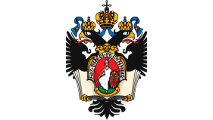
Saint Petersburg State University

Saint Petersburg State University was the first university founded in Russia, in 1724, and has been consistently rated among the world’s top universities in the QS, ARWU, and The World University Rankings. SPbU engages with more than 300 leading universities in 70 countries worldwide, providing its academic staff and students with access to a wide range of research and study opportunities. 30,000 students and 6,000 teachers and researchers all benefit from the opportunity for international cooperation, enabling them to share experiences and keep abreast of the latest advancements in global science.
The Language Testing Centre of Saint Petersburg State University implements an independent external assessment system. It has developed a Level 2 Test in English linked to the B2 CEFR level. The Test is compulsory for all bachelor level students and is taken by 6,000-8,000 students annually.
For more information: testing.spbu.ru.
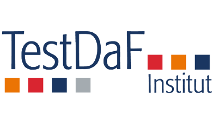
TestDaF-Institut

TestDaF-Institut belongs to the Gesellschaft für Akademische Studienvorbereitung und Testentwicklung e.V. (Society for Academic Study Preparation and Test Development), g.a.s.t. for short. This non- profit organization is concerned with the development, administration, and validation of proficiency and aptitude tests in the domain of higher education: TestDaF (Test of German as a Foreign Language), TestAS (Test for Academic Studies), and onSET (Online Language Placement Test). Together with the Ludwig-Maximilians-Universität München (LMU Munich), TestDaF-Institut offers the innovative web-based platform Deutsch-Uni Online (DUO) for learning languages and for linguistic and subject-related preparation for higher education in Germany.
For more information: www.testdaf.de.



